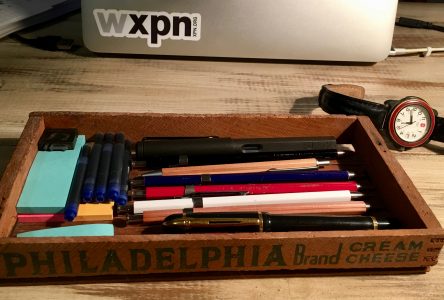As the title says, Jenny Odell is trying to tell us how to do nothing as a form of activism. This irony is a big part of her book because this in part causes us to resist the “attention economy” she talks about. A lot of people are more focused on productivity and an environment that takes advantage of our attention for their own uses such as big corporations. She wants us to take back our attention and see the world around us. It’s to ask ourselves what productivity is and to see who we really are. It’s to enjoy life to the fullest and learn about resistance. Taking control of your attention can mean “the discovery of new worlds and new ways of moving through them.” Thought, a lot of people do this as a detox already so they will be able to get back to work more productively after a refreshed mind. Odell doesn’t believe in this and wants us to be in the middle of reality without disturbances that can divert our attention from life, such as cell phones. Odell says there was a camp in Cambodia that acted as an escape, but this camp eventually went from learning a “healthier relationship” with technology to something like a “corporate retreat.” It goes against a lot of what the original owner of the camp stood for where he wanted people to have a “reevaluation of one’s priorities.” Odell only wants us to learn the art of doing “nothing” for the betterment of the people and environment.
Odell has a lot of valid points that I agree with, but her points don’t apply to everyone. Everyone has their own form of escape and way to live life. She probably realizes this and made this book a lot more for the people who need a better experience of life. Though, getting away from technology isn’t always the answer. Our world has become heavily technology dependent, but there are beautiful and amazing things that can be done with technolog which can be used as a form of escape too. There are people that are too technology dependent, but to get away from that, they do need to first make the decision to start living for themselves before they can actually start doing it. This is a hard decision for people who are used to it. Humans have always liked sticking to the norms so making this decision is the first step to even diverting their attention towards something new. Diverting one’s attention requires a person to have an interest in something in the first place. They need to have an interest in the outside world to be able to see what it’s really all about. As she quotes from Epicurus, all over the world, “you can find men who live for empty desires and never have an interest in the good life.” As a result, a lot of people don’t even know what they have. People need to look around them, make the decision on what is the good life for them, and stick with it. It all depends on where one’s interest is and if they can act on it. Most people need a push in the right direction to actually do it and come upon certain realizations. Odell’s book can be just that for many.
In the past, I’ll have to admit, I was subjected to doing what is considered to be “normal” due to social media and society itself. A lot of these times, my life was just flipping through a book, just waiting for an interesting chapter or page to pop up until it gets to the end. Only recently, I began to take my life into my hands to make the most of it. A lot of my failures have been the causes of realizations such as not meeting people’s, society’s, and my own expectations. Also, it comes from insecurities and not being able to act on certain things. It just causes unnecessary stress that definitely needs to be removed. Instead, I have looked at it more as what I can do for myself and the world around me. This is a point that hits home for a lot of people reading Odell’s work. That includes starting to living in the present and taking any opportunities to make one’s life better and more fulfilling. So far, this book may have made me to look at myself even more and to want to spend more time on seeing the world around me. Getting to one’s self turns out to take a lot more time than one might think. Hopefully we can all see what really makes us happy one day and act upon it.




